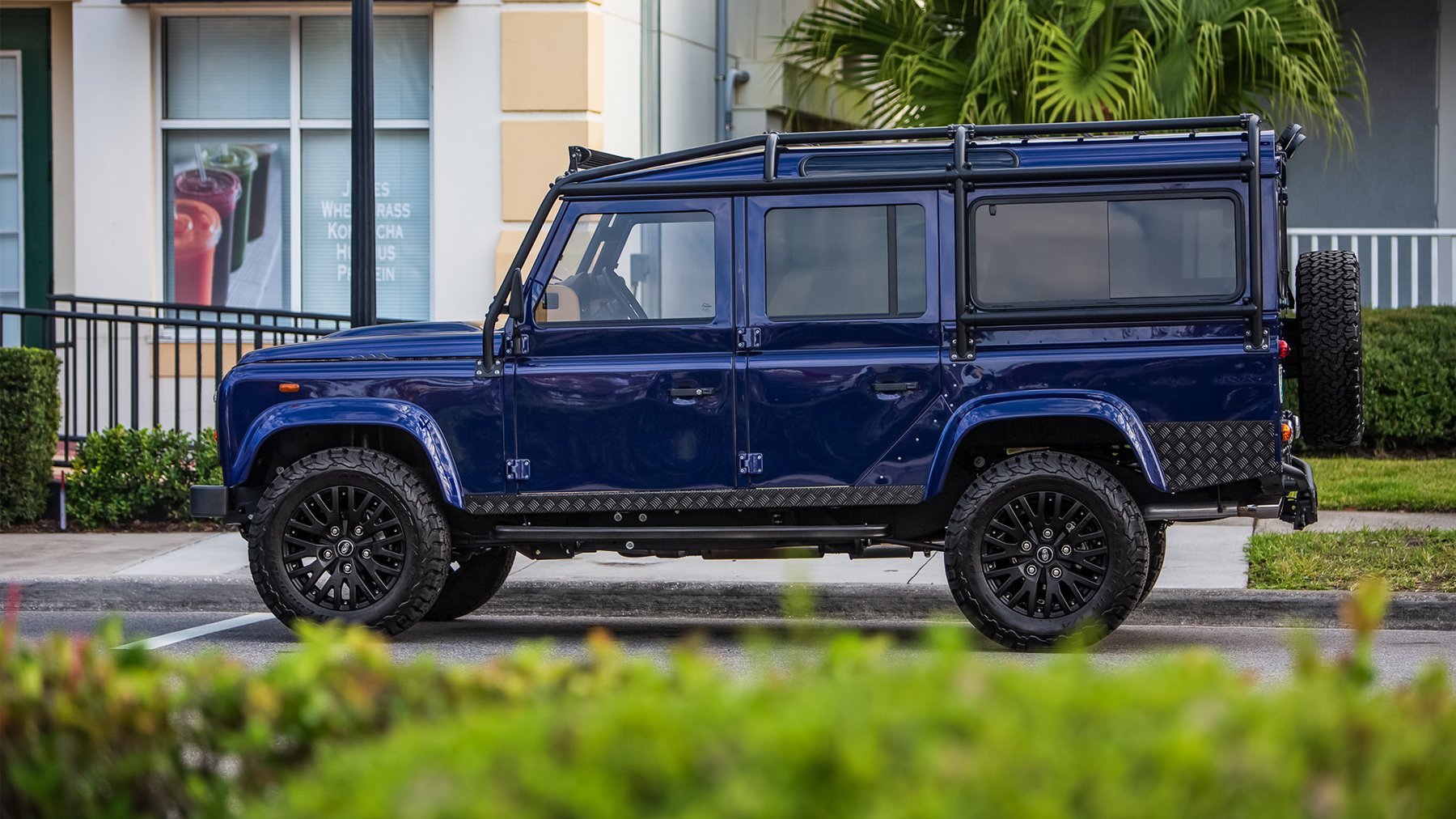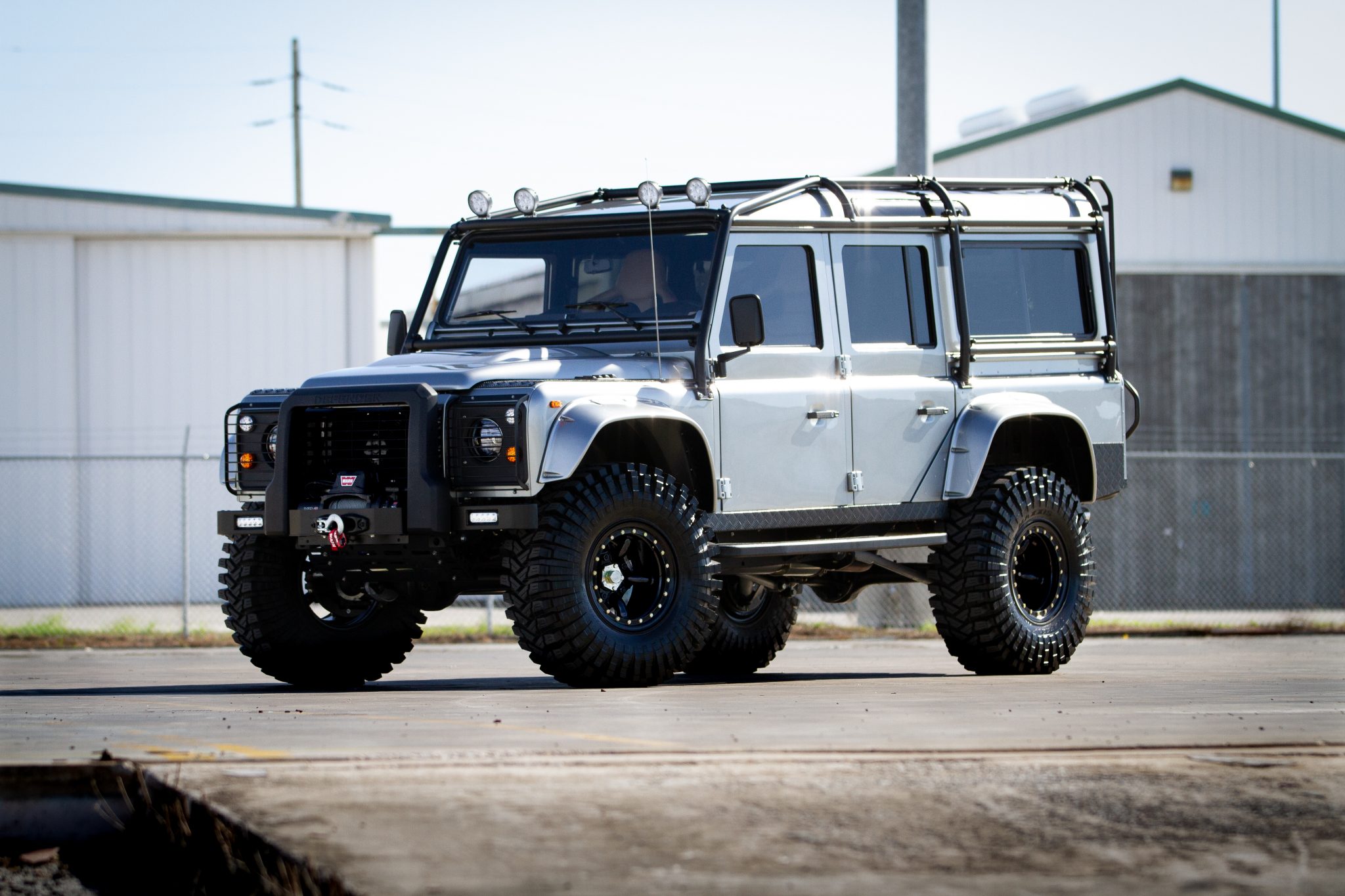Blog
Taking your Classic Land Rover Defender on the Road – What is the Optimal Wheel and Tire Setup for Everyday Driving

Classic SUVs That Defined an Era: From the 1960s to the 1990s
September 9, 2024
6 Benefits of Lifting Your Classic SUV
September 26, 2024Taking your Classic Land Rover Defender on the Road – What is the Optimal Wheel and Tire Setup for Everyday Driving

The classic Land Rover Defender built a reputation for its ability to take on the toughest off-road challenges. It has had a steady following since it was introduced and is cherished by enthusiasts for its rugged boxy design, versatility, and capability. Over the years, it became much more than an off-road vehicle of choice and became a favorite for everyday driving. That said, choosing the best vehicle setup to ensure a comfortable ride is essential, and an optimal wheel and tire setup for daily driving can significantly enhance performance, comfort, and safety. Some things to consider when setting up an optimal wheel and tire setup on your classic Land Rover Defender include:

-
Versality – All-Terrain or Trail-Terrain
Since this is an SUV that is designed for both on- and off-road driving, flexibility matters. You might automatically think that all-terrain is the immediate answer, but these are built more for off-roading. Consider installing trail-terrain tires as they offer more flexibility for both on- and off-road conditions. They offer better traction on various surfaces including pavement, gravel, mud, or snow, making them ideal for the unpredictable and changing driving conditions that your Defender might face.
For everyday driving, look for all-terrain tires with a moderate tread pattern. This will reduce road noise and improve fuel efficiency while still providing sufficient grip on rougher roads. Brands like BFGoodrich, Goodyear, Perelli, and Michelin offer popular trail-terrain options that cater to both daily driving and off-road adventures. When selecting tires, ensure they are rated for the load capacity of your custom Defender to maintain safety and performance standards.
-
Choosing the Proper Wheel Size
It’s easy to think that a larger wheel is better as it does offer a more aggressive stance, but for everyday driving this may not be the best option. they often come at the expense of ride comfort and fuel efficiency. For everyday driving, a wheel size between 16 to 18 inches is optimal for a classic Defender that you plan to drive daily. It is important to remember that the larger the wheel size, the smaller area there will be for the tire in the absence of lifting. This means that there will be less room for rubber and absorption creating a tighter yet less comfortable ride.
Smaller wheels with higher-profile tires provide a more comfortable ride by absorbing bumps and vibrations. This is especially important for a vehicle like the Defender, which has a relatively stiff suspension designed for off-road use. The increased sidewall height of higher-profile tires also offers added protection against potholes and other road hazards.

-
Enhance Stability with Proper Width
The width of both the tires and the wheels plays a crucial role in stability and handling. Wider tires generally provide a better grip, especially in cornering and wet conditions, but they can also increase rolling resistance, which negatively affects fuel efficiency. Also, too wide of a tire can impact turning radius.
A balanced approach is to choose a tire width that complements the Defender's weight and power output. A solid tire width for the Defend is 265 mm, which provides a stable footprint on the road while maintaining a reasonable rolling resistance.
-
Consider Wheel Material and Design
The material and design of your wheels can affect both performance and aesthetics. Choosing between alloy and steel wheels is important as each has their pros and cons.
Alloy wheels are popular for everyday driving because they are lightweight, which can improve fuel efficiency and handling. They also tend to dissipate heat better, reducing the risk of brake fade during extended driving sessions. As a lighter option, an additional benefit is that they give back in terms of better fuel efficiency.
Steel wheels look great and are less prone to cracking, but are heavier, making them a robust option for those who frequently venture off-road but not necessarily the best for the everyday driver. However, they can negatively impact fuel economy and are generally less stylish than alloy wheels. Also, steel wheels tend to vibrate at higher speeds making them not ideal for everyday driving.
For a classic Defender used primarily for everyday driving, alloy wheels strike the perfect balance between performance, durability, and appearance.
-
When Fuel Efficiency Matters
If fuel efficiency is important to you, then each item above plays a factor. Choose tires with a lower rolling resistance to improve fuel efficiency. This means choosing a tire that has a less aggressive tread pattern for everyday driving while still offering sufficient traction for occasional off-road use.
Alloy wheels can also help reduce the overall weight of your Defender, which increases fuel efficiency. It’s also important to properly maintain your tires and be aware of the tire pressure. Keep proper tire inflation not only increases fuel efficiency but also extends the life of your tires and improves safety.
TOP RELATED STORIES
FREQUENTLY ASKED
QUESTIONS
No FAQs configured yet.
